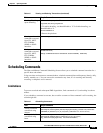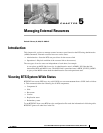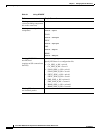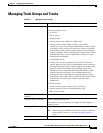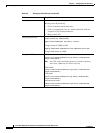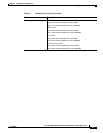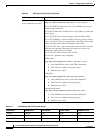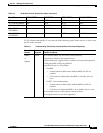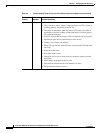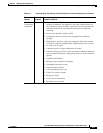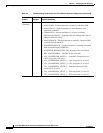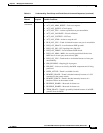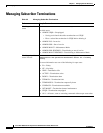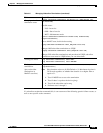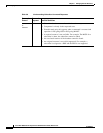
5-7
Cisco BTS 10200 Softswitch Operations and Maintenance Guide, Release 6.0.x
OL-16000-07
Chapter 5 Managing External Resources
Managing Trunk Groups and Trunks
If a TG or trunk command fails, it can return one of the following generic failure reasons, as well as ones
specific to the command.
IDLE INS IDLE ACTV IDLE
ACTIVE INCOMING INS IDLE ACTV IDLE
ACTIVE OUTGOING INS ACTIVE ACTV OBSY
TRANSIENT
INCOMING
INS ACTIVE ACTV IBY-TRNS
TRANSIENT
OUTGOING
INS BUSY ACTV OBSY-TRNS
Table 5-3 Valid Normal Trunk Termination States (continued)
State/Token ADMIN-STATE OPER-STATE STATIC-STATE DYNAMIC-STATE
Table 5-4 Understanding Trunk Group and Trunk Generic Command Responses
Command
Entered
Command
Response Possible Conditions
status
or
control
Failure TG or trunk database was not found in shared memory.
Component is already in the requested state.
Graceful mode only. Appears when a command is executed and operation
is INS going OSS or INS going MAINT.
A required resource is not available.
For ISDN
–
A trunk cannot be added unless both the MGW and TG are
available.
–
A TG cannot be added unless the MGW is available, and vice
versa.
For SS7, CAS, Announcement
–
A trunk cannot be added unless both the MGW and TG are
available.
–
A TG does not require the MGW to be available, and vice versa.
An associated resource of the database cannot be found.
An assigned resource is not valid (supported).



